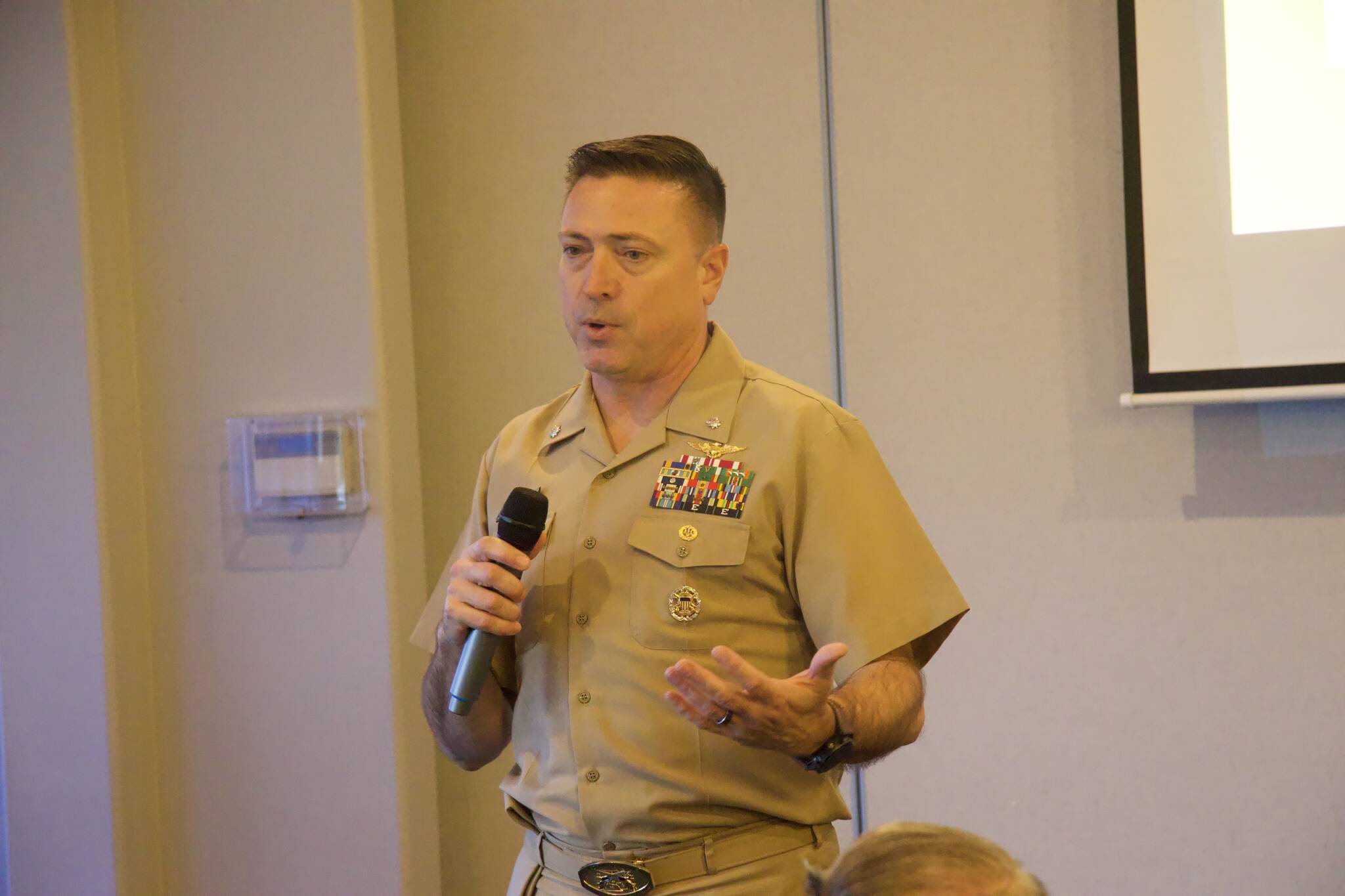The executive officer of Naval Air Station Whidbey Island recently shared information and thoughts with the community about China’s influence on a global scale.
Cmdr. Tim Oswald was the guest speaker last week at a meeting of Whidbey Island Chapter of the Military Officers Association of America. His talk focused on China’s efforts to become a global superpower.
Oswald explained that he was born and raised on a Kansas farm and didn’t see the ocean until he was in his 20s. Nevertheless, he enlisted in the Navy in 1995. He was a jet pilot and went on to train other Navy pilots in Mississippi. He moved to Whidbey Island in 2005.
His first command was a joint task force in Afghanistan, rebuilding structures that had been damaged under Taliban rule. He then worked in recruiting for the Navy in Minnesota for about three years. After his command tour, he was selected to be the Naval attache in Pakistan and spent a year and a half living in Islamabad.
Oswald explained that China is using its Belt and Road Initiative, an infrastructure development program, to facilitate the country’s resurgence and expansionism throughout Asia and the rest of the world.
In Southeast Asia and the South China Sea, Oswald said, China’s intent is to be the hegemon. The country is exploring sources of oil and gas and establishing commercial seaports, transportation corridors, resorts and housing projects. The initiative now encompasses all Chinese foreign investments under one umbrella.
“They are looking to take advantage of every place they can to influence, but also to do trade, primarily maritime trade,” Oswald said.
The South China Sea is important to the United States because 60% of global maritime trade takes place there, along with one-third of the world’s global shipping.
“We have partnered allies over there,” he said, such as Taiwan, the Philippines, Vietnam and Australia.
Oswald said China wants to gain influence in these countries because the Chinese government wants “unfettered access” to the Pacific Ocean. China is conducting military and civilian exploration inside of other South China Sea nations’ territorial and economic waters.
The South China sea has about 190 trillion cubic feet of natural gas and 11 billion barrels of oil. China owns 55% of the fishing vessels that operate in the South China Sea.
Oswald said this is all in an effort to become a global power that rivals the United States, and China’s Navy, along with its maritime industry, is growing quickly in size.
The Whidbey Island Chapter Military Officers Association of America meets at 11:30 a.m. on the second Thursday of every month at Whidbey Golf Club. Learn more at wicmoaa.com.



